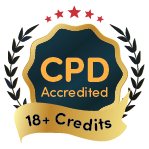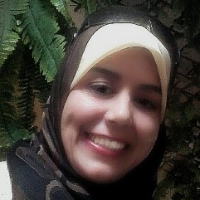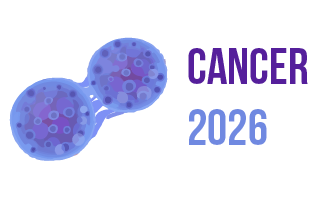4th International Conference on
Innovations and Advances in Cancer Research and Treatment
October 08-09, 2026 | Tokyo, Japan

Address: 68 Horinouchi, Narita, Chiba 286-0107, Japan
Cancer 2026

Al-Zaytoonah University, Jordan
Abstract:
Background
Artificial Intelligence (AI) is increasingly influencing oncology due to its precision, efficiency, accessibility, and cost-saving potential. This study explores whether AI can address critical healthcare challenges. Despite global advancements, AI adoption remains limited in many developing nations, even with the availability of neural networks and intelligent systems.
Methods
A targeted review of medical literature and health news was conducted for Canada, France, Hong Kong, Jordan, Kosovo, and the United States (US), on AI’s role in improving oncology services, access, diagnostic accuracy, and treatment delivery.
Results
Patient surveys revealed widespread dissatisfaction across the studied countries regarding care quality, accessibility, and communication. Since the COVID-19 pandemic, both Canada and Jordan have made notable progress integrating AI in cancer care. Notable developments are as follows:
• Diagnosis: AI-assisted radiology tools at King Hussein Cancer Center in Jordan have improved early detection and treatment planning. Kosovo is piloting AI for imaging analysis, e.g. mammography. ChatGPT-4 prompt assists in analyzing medical records.
• Triage: Neither Jordan nor Kosovo utilize comprehensive AI-based triage systems or report wait times publicly.
• Telehealth: Jordan uses AI-powered symptom checkers via platforms like Altibbi. Kosovo is developing cloud-based AI telemedicine infrastructure, though nationwide coverage remains limited.
• Personalized Treatment: As AI helps predict treatment responses based on tumor and genomic data, Kosovo is building oncology-specific AI modules. Predictive nomograms are already widely in use in Canada and the U.S.
• Robotic Surgery: In Canada, 1–2% of surgeries use systems like Medtronic HUGO™. These are unavailable in Jordan or Kosovo. In US, an AI trial in performing surgery without human assistance is on-going.
• Radiotherapy: France is rapidly advancing AI integration in cancer care through initiatives like the PortrAIt consortium, led by Gustave Roussy and Owkin, a €33 million project to develop 15 AI tools. The Institut de Cancérologie de Lorraine uses AI-powered contouring to improve radiotherapy planning and efficiency.
• Patient Education/Support/Chatbots/Referral: Jordan employs virtual AI assistants for medication adherence and education. Kosovo is implementing similar tools. Hong Kong will use AI for discharge summaries. AI can reduce unnecessary emergency department visits and hospitalization.
• Follow-up Monitoring, Sending Reminders: In Ontario, 64.7% of residents used virtual care (April 2021-August 2022). Jordan reported 14.2% telemedicine engagement. Kosovo is piloting platforms and digital literacy programs.
• Research by literature reviews, trial recruitment and electronic patient-reported outcomes: In France, AI-driven data sharing across public and private sectors will occur in the future.
• Quality assurance can reduce errors via standardization.
Challenges
Challenges persist: algorithmic bias, resistance to adoption, ethical dilemmas, limited funding, and the irreplaceable role of human empathy in care. AI is only a helper to reduce workload—not a replacement—implemented within robust ethical and regulatory frameworks.
Conclusions
AI continues to integrate into oncology, especially in diagnostics, modeling, and individualized treatment planning. When used responsibly, it can improve outcomes, reduce system strain, and foster equitable access. Ultimately, AI holds promise in addressing clinician/nursing shortages, long wait times, and rising service demands—leading to a more efficient and inclusive healthcare future.
Biography:
Dr Subih, graduate from University of Jordan (first locally and ninth overall among Arab universities, and 324 in the World University Rankings). Associate professor at AlZaytoonah University of Jordan, Nursing Faculty. She has 40 full publications, 3 conference abstracts.
